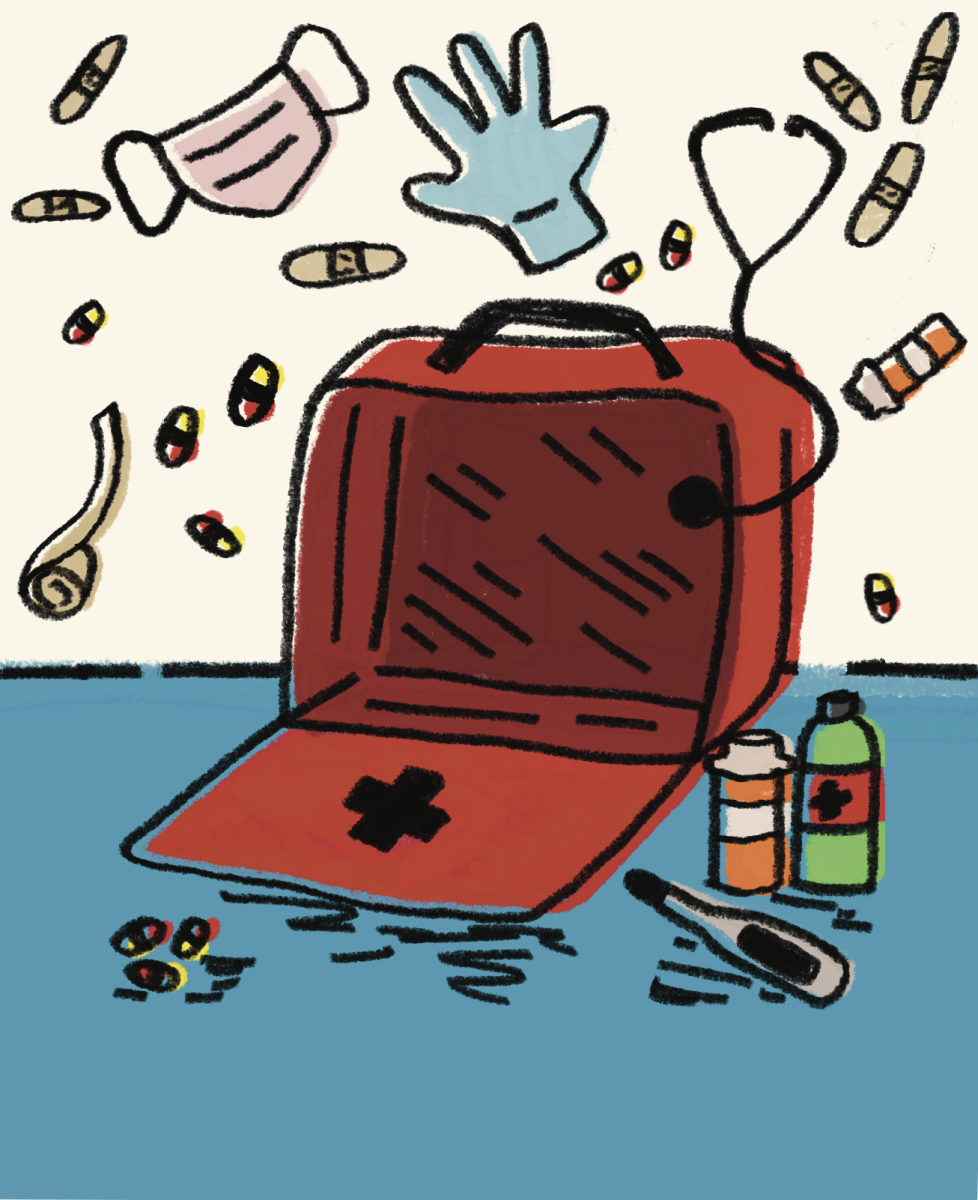Violent headlines constantly show up in the news cycle, and with them often comes feelings of helplessness and despair, but preparedness and training can help alleviate this. There are some skills that can help people feel more prepared and confident in emergency situations such as training programs like cardiopulmonary resuscitation, or CPR, and Stop the Bleed.
Different types of first aid and preparedness training are an easy and effective way to be prepared if an emergency happens. They can help save lives and ease anxiety. App State should provide regular, free training in CPR and Stop the Bleed, which teaches how to treat traumatic bleeding in order to create a more prepared and proactive environment for students.
CPR is used in the event of cardiac arrest to keep oxygenated blood circulating, preventing brain damage and ultimately death. Stop the Bleed training focuses on teaching individuals to identify and treat life threatening bleeding by applying pressure, packing the wound and if necessary, applying a tourniquet.
CPR may be one of the most common first aid certifications, but it remains one of the most essential. According to the American Red Cross, EMS cares for 350,000 people a year who go into cardiac arrest outside of hospitals and less than 10% survive within the United States. A little over 70% of these incidents occur in the home. The American Red Cross certification and American Health Training both charge around $30 for online CPR and automatic external defibrillator, or AED courses.
It’s important to note that all App State academic buildings and event spaces are equipped with AEDs in the event of an emergency. Mountaineer Medics provide hands-only CPR and basic first-aid training including Stop the Bleed for free, but they do not come with certifications. Through the American Red Cross, a student can pay $25 to become CPR and AED certified by Mountaineer Medics or $60 through University Recreation. Each certification is typically good for two years.
Watauga County Rescue Squad also offers monthly CRP training, Stop the Bleed and layperson epinephrine administration for free or $15 for the CPR card. While community pathways for emergency preparedness beyond App State are invaluable, students might not be aware of these opportunities and will turn to the university to seek opportunities for training. For students, the university is typically the first line of defense when it comes to information and resources and this should be no different when it comes to preparedness training.
Post-traumatic bleeding is the leading cause of preventable death in trauma patients in prehospital settings. In 2023, there were approximately 47,000 deaths relating to gun violence in the United States, making firearms the leading cause of death among kids and teens.
Students are all too familiar with the experience of seeing headline after headline announcing another mass shooting. The U.S. has had “57 times as many school shootings as all other major industrialized nations combined,” according to the American Association of Pediatrics. They also found that between the years 1997-2022, there have been 1453 school shootings.
Since the beginning of 2025 there have been 12 mass shootings. With the majority of mass shootings occurring at work places and schools, this reality is becoming more common. Skills like CPR and Stop the Bleed training are more necessary than ever.
Whether it is an event of mass violence, a hiking accident or an incident of pure circumstances for major injury to occur, having people nearby who can act swiftly can only help reduce the number of deaths due to trauma. If this routine and no cost training results in having more people in our community with the ability to save lives outside of the work first responders do, then there seems to be no reason that this should not be provided by the university.
These skills can be used in a wide range of emergency situations. College equips students with many life skills and these skills are ones that should be provided for free. Regular and no cost CPR and Stop the Bleed classes benefit students by being an additional tool that App State can provide. These resources can lead to preparedness and maybe even a life saved.
Editor’s note: A previous version of this story included misinterpreted information regarding university resources. The sentences containing this information have since been revised.




MuChao • Oct 2, 2025 at 2:58 pm
For less than **3%** of the annual student fees used to directly subsidize the ongoing debt and annual losses incurred by the financial black hole that is Athletics, one could cover the $25 cost for EVERY student to be trained in CPR via Mountaineer Medics.
Michele L. Rudisill, Clinical Assistant Professor, Nursing • Oct 2, 2025 at 10:34 am
Thank you for sharing your thoughts on emergency preparedness. I agree that all students and faculty should have CPR skills, AED skills, and awareness of tourniquets and how to use them in a traumatic event. Thanks for highlighting community resources for acquiring these skills.